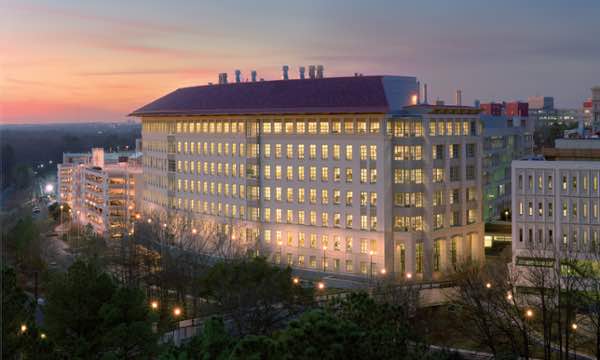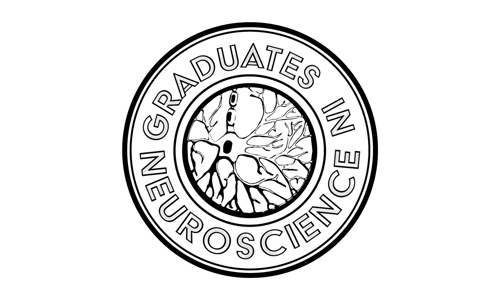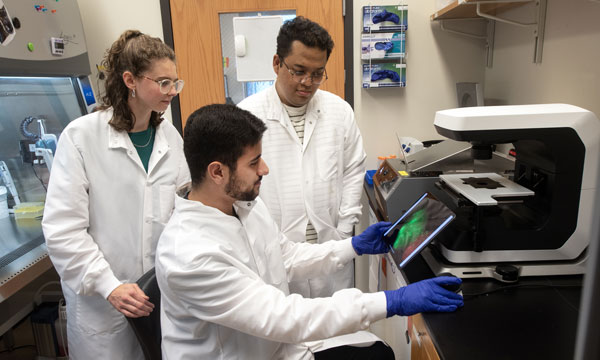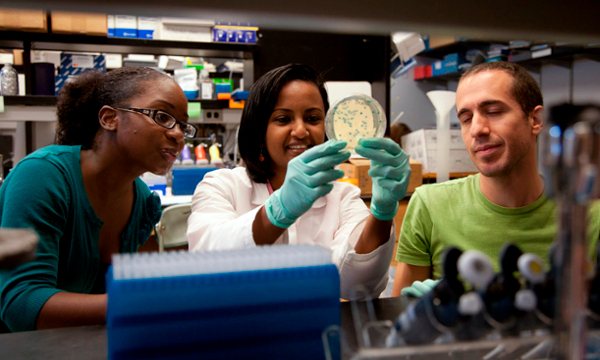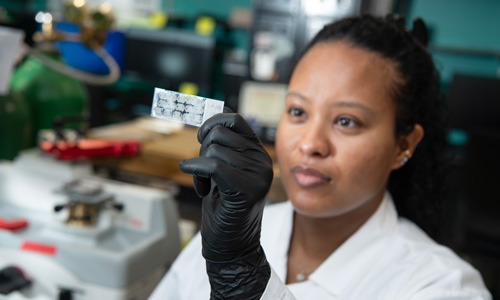Prospective Students
GDBBS Guide
Neuroscience Program: Why Emory?
A cornerstone of the Emory Neuroscience program is the incredible sense of academic community that our participants enjoy. Our program was ranked #1 for overall student satisfaction in the National Doctoral Program Survey, in part due to the high level of interaction between faculty and students and a mentoring system which creates a supportive atmosphere for success.
In addition to excellent student-faculty interaction, advanced graduate students mentor their peers through each milestone from the time of admission through the oral qualifying exam in the third year.
To facilitate sharing of ideas and interests, we have a weekly "Frontiers in Neuroscience" seminar, and selected students each year are able to invite an eminent neuroscientist of their choice to speak and meet with students and faculty. We also have monthly seminars held by the Center for Neurodegenerative Disease, and many active Seminars and Journal Clubs.
The Graduates in Neuroscience club (GIN) organizes an annual Program Retreat in the Georgia mountains, several student/faculty mixers throughout the year, and the yearly "Excellence in Neuroscience" lecture, open to the entire Atlanta Neuroscience community.
In a leadership role, students are able to participate in the direction of the program by serving alongside faculty on the Executive committee, the Curriculum committee and the Admissions committee.
The Emory Neuroscience program is structured to encourage a collaborative, multi-disciplinary approach to solving challenging research questions, with interdisciplinary Center Grants and a joint program in Hybrid Neural Microsystems with neighboring Georgia Tech.
Our Center Grants bring together the laboratories of molecular neuroscientists, behavioral neuroscientists, electrophysiologists, geneticists, biochemists, and clinicians to form dynamic research centers around topics such as Fear Learning and Memory, Affiliative Behavior, Aggression, Reproduction, Mental Disorders, Parkinson's Disease, and Alzheimer's Disease.
Many of our students have co-advisors from diverse sub-disciplines within the Emory Neuroscience program, as well as having access to co-advisors from neighboring universities.
In addition, our faculty have collaborative ties to a host of other universities and organizations such as deCODE genetics and the nearby Centers for Disease Control (CDC).
Emory students and faculty are working on the cutting edge of neuroscience, with numerous recent high-impact publications on molecular and genetic mechanisms of social bonding, reward and salience processing in the striatum, computational modeling of neurons, cannabanoids in fear extinction, and more. Students have access to a wealth of research resources, including sixteen high-tech Research Core Facilities and a host of highly accomplished faculty including four National Academy members, thirteen members of the prestigious American College of Neuropsychopharmacology, and faculty trained in the labs of Nobel Laureates Robert Lefkowitz, Paul Greengard, and Linda Buck.
Our Core Facilities are state-of-the art resources that provide training, equipment, and outsourcing for diverse needs such as functional imaging, gene sequencing and transgenics, microarray analysis, animal behavior, tissue banking, and advanced microscopy. Such resources allow our students to efficiently integrate multiple disciplines to produce innovative findings.
We also have a High Performance Computing Cluster for running complex neural simulations and bioinformatics algorithms.
A strong research environment enables our students to become confident, skilled investigators; typically a student will have 2-4 publications at graduation in addition to other honors and awards. Our students also compete very well for research funding. In 2015, Emory ranked first in the U.S. for students with NIH predoctoral fellowships with 50, 13 of which were held by Emory neuroscience students.
To date, the program has produced over 200 alumni, and those that have chosen to stay in research have obtained excellent postdoctoral positions to pursue further training, as well as tenure-track faculty appointments. Our alumni compete very well for jobs in academia, industry, and research institutes.
